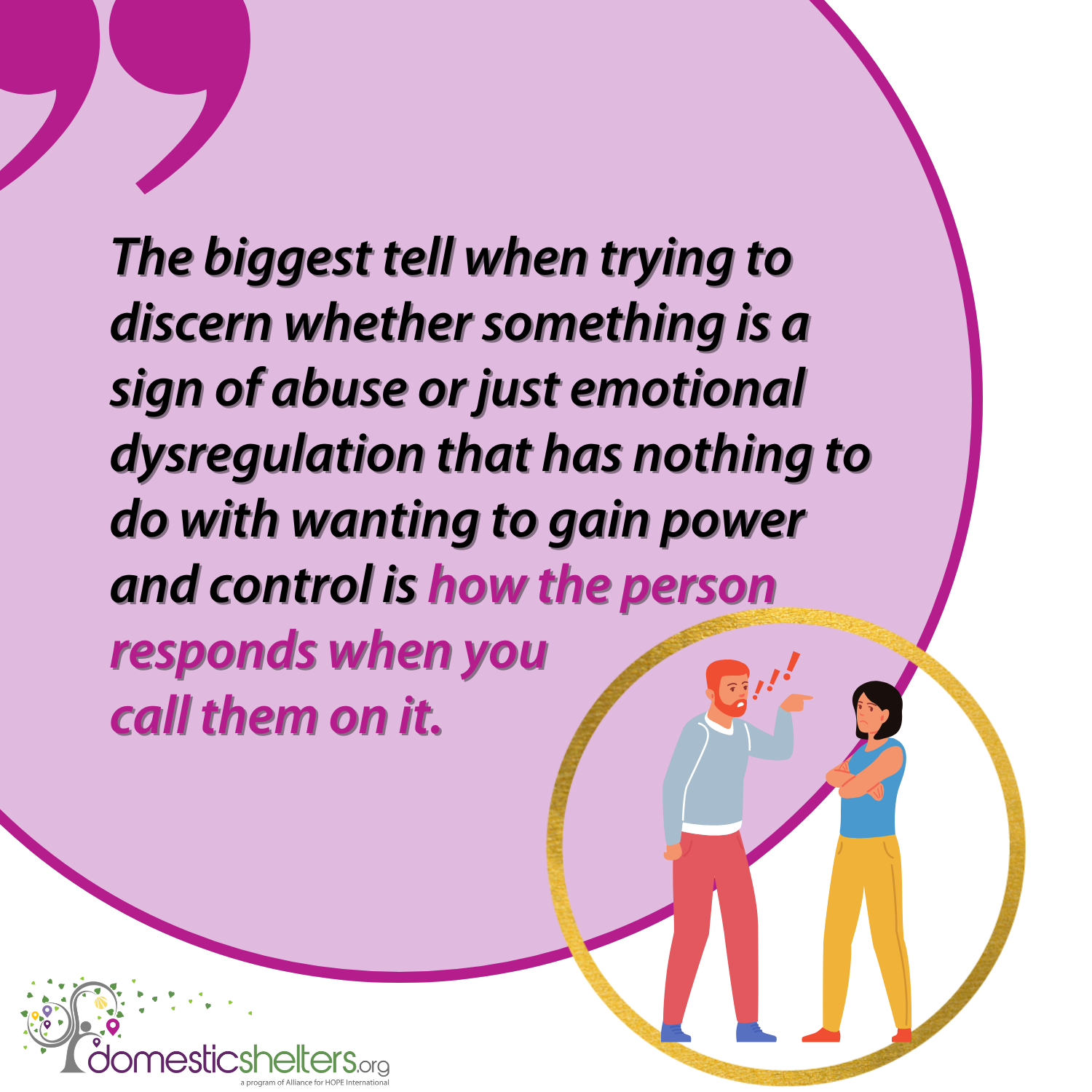1. Select a discrete app icon.

notes
Ask Amanda: Why Is My Husband Yelling at Me?
Wife wonders if his yelling is going to escalate to other types of abuse
- Oct 07, 2024

Q: My husband yells at me whenever I mess up. Not just raises his voice, he yells. I don’t think he sees a problem with this, but I feel like a kid who’s being scorned by a parent. I don’t yell back—not my style—so I just let him get his yells out and then we move on. He never apologizes, even when I tell him I hate how he yells at me. Lately, after reading some articles here, I’ve been wondering if this counts as abuse and if it means worse things are coming. We’ve only been married for a year.
Yelling can be an indicator of a need for domination and power, but it can also be a symptom of being emotionally overwhelmed. It’s also a sign that someone hasn’t learned how to adequately control their emotions. Apparently, no one ever taught your husband the breathing technique of smelling the flower (breathing in deeply through your nose) before blowing out the candle (puckering your lips and exhaling slowly). My kids learned that in preschool, and we use it whenever emotions for any of us feel a little out of control. Maybe you could suggest this to him. Then again, he might yell at you for suggesting he try to control his yelling. That would be a pretty clear indication that he doesn’t have any intention of adjusting his behavior.
The biggest tell for me when trying to discern whether something like this is a sign of abuse or just emotional dysregulation that has nothing to do with wanting to gain power and control is how the person responds when you call them on it. Showing remorse and expressing a desire to change are green flags. They usually mean the person using that abusive tactic wants to do better and feels ashamed for being a less-than-stellar partner. If they do change their behavior after you tell them how you feel, this is another positive sign. Sometimes, people don’t know how to be a good partner until their partner tells them what they need.

Unfortunately, it doesn’t sound like this is the case in your relationship. Your husband’s lack of apology and the fact that he continues to yell at you, even though he knows it makes you uncomfortable, are big red flags for me. They’re as bothersome as the yelling.
We often look for a reason when someone is treating us like this. After all, it’s not you, it’s him. Could he have childhood trauma? Substance abuse issues? A mental health disorder? A hearing issue (would explain why he can’t discern the volume of his own voice). Only he, or a medical professional, can say for sure if any of these are true, but I suppose they could be possibilities. However, none of them excuse the yelling or make it OK. If something is going on with his physical or mental health, it's his responsibility to seek help for that problem. Which he would do if he truly prioritized his wife’s feelings, which it sadly sounds like he doesn’t.
We may need to consider the possibility that he’s yelling simply because it feels good to get his anger out in that fashion, and the way that it impacts you isn’t enough to stop him. I’m not a marriage counselor, but it seems to me that you have two choices here: Wear earplugs for the rest of your life or consider that this person is not a healthy partner for you. I hope you pick the latter—no one deserves to be yelled at, even children when they mess up. Yelling is essentially bullying. Yelling is also a tactic of verbal and emotional abuse. Being yelled at, especially by someone you love and trust, can be scary, stressful and disorienting.
Will his yelling escalate to something more serious? I would say there’s a very good chance of that. If your husband is yelling to show his dominance and power, he’s probably going to continue to push that boundary as far as he can take it. Escalation red flags that he may utilize (if he hasn’t already) can look like the following:
- Isolating you from friends or family and/or discouraging you from seeing them.
- Blaming you and others for his behavior; not taking responsibility for his own actions.
- Threatening you with a weapon.
- Pushing, shoving, or cornering you.
- Destroying your property.
- Threatening to hurt or kill your pets.
- Threatening to take away or harm your children.
- Does not respect your boundaries; keeps constant tabs on your activities.
- Displays excessive jealousy or paranoia.
- Pressures you to have sex or use drugs.
- Has a history of abusing others.
- Rages out of control with you but can maintain composure around others.
You may want to reach out to a trained domestic violence advocate at your local program just to talk safety planning if you think you want to take a break or leave for good. Sometimes, leaving a partner who’s showing abusive behavior can increase your risk of danger. It’s best to be as prepared as possible for any scenario.
Good luck, and here’s hoping you find a quieter future with or without him.
Have a question for Ask Amanda? Message us on Facebook, Twitter or email AskAmanda@DomesticShelters.org.
Ask Amanda is meant to offer helpful resources and information about domestic violence. If in crisis, please reach out to your nearest domestic violence shelter for the guidance of a trained advocate.
Donate and change a life
Your support gives hope and help to victims of domestic violence every day.








